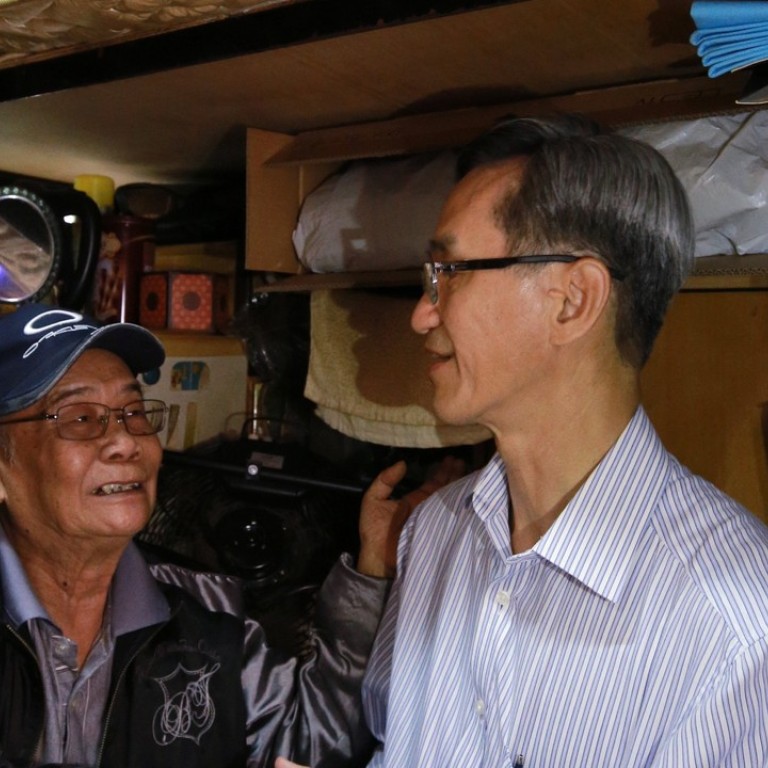Advertisement
Advertisement

How Hong Kong’s elderly workers can offer city a way out of the poverty trap
Hong Kong looks like a prosperous city, with a thriving economy. But many Hongkongers still live in subdivided flats and survive on less than HK$15 for a meal, with one in five living under the official poverty line. This is a shame.
The reasons that poverty is so hard to beat in Hong Kong are not hard to find. First, the underprivileged usually have a low level of education. Those who lack higher education and skills remain jobless or in low-paying jobs and struggle to afford even daily necessities.
This can cause a sense of alienation. Gripped by a sense of futility, such people may lack the confidence or will to seek opportunities and make their place in society, which makes them even poorer, thus creating a vicious cycle of poverty.
Why Hong Kong’s seniors are in favour of working in old age – they can’t survive any other way
Sky-high housing prices is another major factor forcing people down the social ladder. But it seems the government finds it hard to tackle the housing problem. It runs poverty alleviation measures like the Comprehensive Social Security Allowance, the Old Age Allowance and the newer Low-income Working Family Allowance Scheme, but I think such financial incentives only scratch the surface. I believe the government should first remedy the discrimination seen in society, especially against elderly workers.
Hong Kong’s job market has no room for the elderly
The elderly make up a large proportion of our impoverished citizens. Many of them actively seek jobs, but are rarely hired due to the perception that the elderly have low physical strength and would perform poorly. Dispelling this perception would expand the opportunities available for underprivileged citizens to improve their lives. Inclusion in the mainstream would give impoverished citizens the motivation to help themselves beat poverty.
Cathy Yuen, Tseung Kwan O

Post
